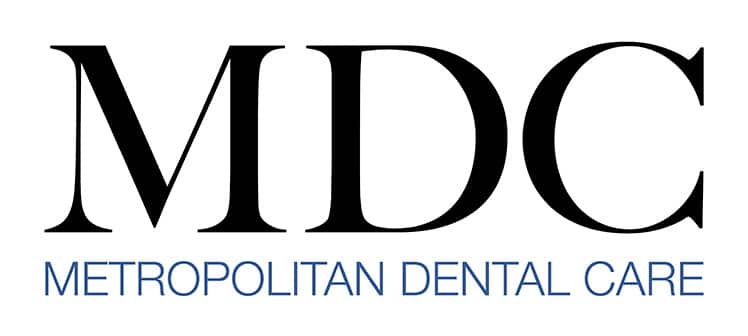Can TMJ/TMD Be Cured?

Temporomandibular joint disorders (TMD), commonly referred to as TMJ, can cause significant discomfort and disruption to daily life. Symptoms range from persistent jaw pain, headaches, and difficulty chewing to issues like earaches, facial tenderness, and even neck and shoulder pain. These disorders impact countless individuals, sparking an important question—can TMJ be cured? Due to the complexity of the condition, there isn’t a universal answer, but the good news is that there are effective management and treatment options available. These options can provide relief, improve functionality, and restore comfort for many sufferers.
At Metropolitan Dental Care, we work closely with patients to identify the root causes of TMJ disorders, tailoring treatments to suit individual needs. This blog aims to provide clarity on TMJ, delve into its causes, and explore its management and improvement, offering insights into how patients can regain control over their daily lives.
Understanding TMJ/TMD and Its Causes
TMJ refers to the temporomandibular joints, located on both sides of the jaw, connecting the jawbone to the skull. These joints enable essential actions like chewing, speaking, and even yawning. When these joints or the surrounding muscles are strained or damaged, TMD can develop, leading to symptoms that disrupt even the simplest daily activities.
Several factors can contribute to TMJ disorders, and understanding these causes is critical to finding the right treatment. Some common factors include:
- Grinding or Clenching Teeth (Bruxism): Often occurring unconsciously during sleep or in moments of stress, this habit can place excessive pressure on the jaw joints, leading to pain and dysfunction.
- Arthritis: Certain types of arthritis, such as osteoarthritis or rheumatoid arthritis, can cause inflammation, damage, or wear and tear on the temporomandibular joint.
- Jaw Injuries: Trauma from accidents or sports injuries, as well as repetitive motion injuries, can weaken or harm the joint and surrounding muscles.
- Misalignment: An uneven bite, missing teeth, or orthodontic issues can create imbalance in the jaw, placing additional strain on the TMJ over time.
- Stress and Tension: Chronic stress often contributes to clenching or tightening of the jaw muscles, exacerbating symptoms.
By pinpointing the root cause, dental professionals can develop a personalized and effective treatment plan to address the specific challenges a patient is facing.
Can TMJ/TMD Be Fully Cured?
The term "cure" is often subjective when it comes to TMJ due to the variability in its causes and severity. For most individuals, the focus of TMJ treatment is on symptom relief, long-term management, and improving quality of life rather than achieving a one-size-fits-all cure. While some cases can resolve entirely with proper care, others may require ongoing treatment and lifestyle adjustments.
The prognosis largely depends on the underlying cause. For example, TMJ caused by temporary issues like stress-induced clenching can often be resolved with behavior modification, stress management, and lifestyle changes. On the other hand, chronic cases, such as those caused by arthritis or structural abnormalities in the jaw, may require ongoing care to manage symptoms effectively.
It’s important to remember that early intervention plays a key role in achieving the best outcomes. Addressing symptoms at their onset can prevent further damage and reduce the need for more invasive treatments down the line.
Treatment Options for Managing TMJ/TMD
Although a complete cure may not always be possible, there are numerous treatments available to manage TMJ disorders and significantly improve a patient’s quality of life. These options range from non-invasive methods to minimally invasive procedures, depending on the patient’s specific needs:
- Custom Oral Appliances: Devices like splints or mouthguards are designed to realign the jaw, reduce strain, and prevent damage caused by bruxism or uneven bites. These appliances are often worn overnight for maximum effectiveness.
- Botox for TMJ: Botox injections target overactive muscles in the jaw, alleviating tension and reducing pain. This treatment is particularly effective for those who suffer from chronic clenching or grinding.
- Physical Therapy and Myofunctional Therapy Exercises: A physical therapist and/or a myofunctional therapist can guide patients through targeted jaw exercises and stretches that improve mobility, strengthen the joint, and reduce discomfort.
- Minimally-Invasive Interventions: Options like corticosteroid injections or arthrocentesis (a procedure to flush the joint) address inflammation or immobility in severe cases without requiring surgery.
- Medications: Anti-inflammatory drugs, muscle relaxants, or low-dose antidepressants may be prescribed to help manage pain or reduce stress-related symptoms.
For patients experiencing persistent symptoms, a visit to a qualified dental professional is crucial. At Metropolitan Dental Care, we specialize in evaluating and treating TMJ disorders, helping patients find lasting relief through individualized care plans.
Holistic Approaches to TMJ Relief
Beyond traditional treatments, holistic lifestyle adjustments can play an important role in managing TMJ symptoms and preventing flare-ups. Incorporating these changes into your daily routine can support recovery and enhance the effectiveness of professional treatments:
- Stress Management: Chronic stress often exacerbates clenching and jaw tension, so implementing relaxation techniques like mindfulness, meditation, or yoga can provide noticeable relief.
- Dietary Adjustments: Eating softer foods can reduce jaw strain during flare-ups, while following an anti-inflammatory diet—rich in fruits, vegetables, and omega-3 fatty acids—can help reduce joint inflammation.
- Lifestyle Changes: Avoid habits that strain the jaw, such as chewing gum, biting nails, or resting your chin on your hand. Small adjustments can make a big difference in reducing unnecessary joint stress.
- Posture Awareness: Poor posture, especially during work or screen time, can contribute to jaw tension. Maintaining good posture and taking regular breaks to stretch can help alleviate strain on the neck and jaw.
When combined with professional dental treatments, these holistic approaches create a comprehensive care plan that addresses the multifaceted nature of TMJ disorders. By taking proactive steps and working with a trusted provider, patients can regain comfort, improve functionality, and reduce the impact of TMJ on their daily lives.
If you’re struggling with TMJ symptoms, don’t wait any longer—reach out to Metropolitan Dental Care today and take the first step toward relief.
Frequently Asked Questions About TMJ Treatment
What is the typical recovery period for TMJ treatments?
The length of recovery depends on the severity of the TMJ disorder and the chosen treatment plan. For mild cases managed through lifestyle changes, improvement may be noticeable within a few weeks. Treatments like oral appliances or Botox may take a few months to show maximum effectiveness. Chronic conditions may require ongoing care and monitoring.
Are TMJ disorders preventable?
While not all TMJ disorders are preventable, taking proactive measures can reduce your risk. Maintaining good posture, avoiding habits like clenching or grinding teeth, and addressing stress can help protect your jaw health. Regular dental checkups can also catch early signs before symptoms worsen.
At Metropolitan Dental Care, we believe in providing compassionate, personalized care for every patient. From addressing TMJ disorders to full smile makeovers, our experienced dentists are dedicated to delivering top-tier services using advanced techniques. If you're ready to take the next step, contact us today to learn more about how we can help you.
